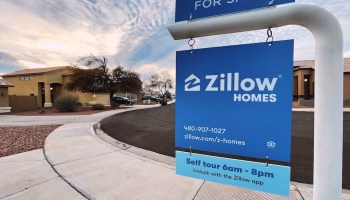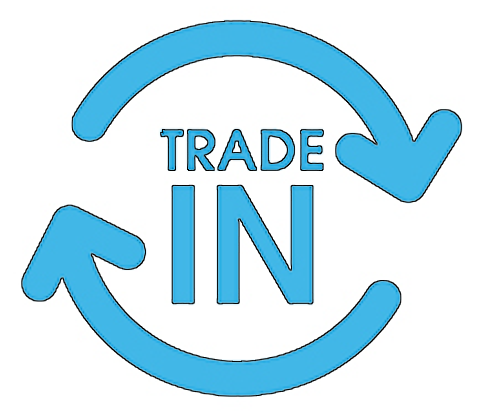Every year it gets worse, until now it’s to the point where you can’t turn on your TV or gon on the Internet without seeing an ad for getting a Cash Offer for your home. Lately here in SoCal it’s been Tarek of Flip Or Flop HDTV Fame. And I don’t know about you, but I’ve even been getting cash offers by telephone. Wherever you are, I’m sure you’ve heard of We Buy Ugly Houses, and more recently OpenDoor, Offerpad and RedfinNow. And if you’re the least bit interested in Real Estate you must have heard the news about Zillow Offer’s colossal failure with their much-hyped Zillow Offers iBuying platform and the thousands of Zillow-owned homes that they can’t seem to sell (even in this red-hot sellers’ market). In fact there’s a house in my neighborhood that’s had a Zillow sign for the better part of a year when homes are selling for record speed.
So what’s the deal with these Cash Offers and who the heck are these “iBuyers” anyway?
Glad you asked, that’s what we’re here to explain, the Good, the Bad and the we buy Ugly houses. And stay tuned because I’m going to show you a third option that is so new, very few in the industry have even heard about it… <whisper> … “The Trade In.”

Traditional Cash Buyers
First off, before we get into recent tech-driven phenomena like iBuyers, let’s talk about something that’s been around since the invention of the home… or was it the invention of cash? Cash Buyers. Traditionally, cash buyers were independent real estate investors looking for “fixer” properties that they could buy for as little as possible. They would purchase for cash for two reasons, one, a seller would only take a offer that low if it was cash, and… two, well they just didn’t have the credit to buy with a traditional mortgage loan. Whether they planned on flipping the property as “rehabbers” or keep the property to rent out as “buy & hold” investors, or even “wholesale” the property, which is essentially flipping the purchase agreement, they ALL operated – and still do operate – under the same basic formula.
The cash buyer starts with the ARV (After-Repair Value), which is what you can sell the refurbished property for on the “retail” market, and then subtract from there to make the cash offer. The standard formula is to subtract 25% from the ARV, and then subtract the cost of repairs from that. The end result is around 65 to 70% of the ‘ARV‘, which most seller consider too low. But not all. Time is money, and some Sellers – they’re called “Motivated Sellers” – have very good reasons for wanting to sell as fast as possible, price be damned. For example, if a homeowner is in foreclosure and has a foreclosure auction sale date coming up, that owner is wants to sell that house as fast as possible to avoid the seven years of bad credit that a foreclosure would scar your credit record with. Another less extreme example is when an employee of a large company is suddenly transferred to another part of the country. Another situation is when someone suddenly and unexpected inherits a property in bad condition, and they just don’t want to deal with it.
So that’s the traditional cash buyer, often a real estate investor who’s also a contractor or works with a regular crew. And there have always been some investors that scaled up in a big way, spending thousands on marketing per month with multiple crews and dominating their local markets. Eventually with Internet, it became possible to go nation-wide and we had companies like WeBuyUglyHouses.com, which is a franchise operation actually, and WeBuyHouses which claims to only “sell exclusive branding and marketing systems withing a defined geographic territory.” Whatever.
As big as these cash buyers are, the actual cash buyer in your city or town is still on a relatively small scale.

iBuyers
When the Internet really took off, and after the iMac, iPhone, iPad and iBook came… the iBUYER! Have you heard the phrase “Deep Pockets”? Well these guys have taken that to a whole new level with assets in the Billions. It’s not a totally new concept, as massively-financed investment companies like Blackstone have been buying up real estate since at least the great recession of 2008. But these companies are solely focused on buying residential properties.
iBuyer companies focus on buying relatively new homes that are close to market-ready. These companies also aren’t available everywhere — so be sure to check which iBuyer companies are working in your area.
There are three major iBuyer companies that currently account for the majority of sales: Opendoor, Offerpad, and Redfin Now. As I mentioned, Zillow used to have a large iBuying division called Zillow Offers, but the company abruptly halted buying operations in mid-2021 when they realized they were paying sellers too much and they couldn’t turn the houses around for a profit, even in the uber-hot seller’s market of 2021.
Now here’s something to think about, perhaps a lesson on the power of the press and marketing. As much as we have been hearing about these iBuyers, even when iBuyer’s reached their peak just before the exit of Zillow in Q3 2021, iBuyers accounted for all of 1.6% of all homes purchased in the US. That’s around 28,000 homes, nearly double the 15,000 homes purchased by iBuyers in Q2, but for all the hype and marketing, over 98% of US homes are iNOT Buyer sales. And those national stats are a bit padded, as Phoenix, AZ accounts for a huge portion of iBuyer transactions. They’ve even considered changing the name to “Valley of the iBuyer.” Which brings up the point, all this discussion of Cash Buyers and iBuyers really depends on where you are. Many of these companies are only operating in a single market or a handful of markets.
The undisputed king of iBuyers, OpenDoor, was available in only 45 metro areas in the US at the end of 2021. Offerpad is currently active in only 22 cities. Since iBuyers are in business to make money, they choose areas that offer high appreciation and quick sales.
iBuyer criteria
In addition, not all homes qualify for iBuyer’s criteria. Unlike the traditional cash buyer real estate investors and even Ugly House franchisees, who WANT ugly fixers, most iBuyers want properties that fit into their preferences. Since they’re operating on a bulk scale, they want to standardize the process as much as possible to cut costs and save on training their hourly staff.
For example, a typical iBuyer purchase criteria would be:
- Property type = Single family residential house, condo or townhome
- Lot size = 0.5 to 1.5 acres
- Building Age: Built after 1930
- Valuation: Between $200,000 and $700,000
- Location: Within an “eligible service area”
So what can you the seller expect from an iBuyer? We already learned that you can expect a good 25% less on an all-cash offer from an investor. If your home is in good shape it may be a fair compromise considering the speed that an iBuyer can purchase compared to a real estate agent sale in typical real estate markets, but if the property needs repairs the iBuyers charge more than most general contractors and certainly more than flippers. And most iBuyers charge a 5% fee, which is the same or at most 1% less than what a full-service Realtor charges. But wait, there’s more – buried in the fine print, and never mentioned in their ads, sellers will also have to pay the closings costs (between 1 and 3%). Combining the fees with the lower initial offer and higher repairs, in the end the seller definitely PAYS for convenience and time-savings of a cash sale. And if the iBuyer tells you that you must make repairs, then you’ve pretty much lost the time advantage, as you would need to wait for their crews to come in and make what they consider to be the “necessary repairs”.
Here’s something to watch out for: As of presstime, Offerpad gives you an initial cash offer based on what you submit online, and then have you sign a purchase agreement before scheduling an inspection to determine what repair costs YOU are responsible for. If you don’t like the repair bill, Offerpad has made it difficult for sellers to back out, so sellers could be out even more money.
Investor Offers vs iBuyers
Summary: So both Cash Offers from Investors and iBuyer offers offer the Seller the advantage of a fast sale with minimal hassle, with the trade-off being a loss of many thousands of dollars. Time is money after all, so this is fair. BUT… as I tell you this in early 2022 with a hot sellers’ market, the time advantage is almost nil. When Realtors list homes in the current market, they are accepting offers within the week and closing escrows in sometimes as little as 15 days, and still selling the homes for top dollar and giving one-on-one personal service. While iBuyers claim to provide full-service, you are often shuffled between random staff members who work on salary, kind of the like the “Government Workers” of the real estate industry. Sure Realtors often get a bad rap, but the fact is, if you’re not good you’re out of business.
So while it SEEMS like using technology to sell property is a great idea – after all, technology sure worked put great for consumer goods with Amazon Prime – selling real estate is a more complex and nuanced transaction, and when you think about it, it’s the largest financial transaction of most people’s lives.
But wait, there’s more!
So what if you could sell your home with a Realtor and get cash for it, AND get cash at the full currently appraised value? Sounds pretty good, right? If you are looking to purchase your next home, then this option is available to you, it’s called the “Trade-In” by the lender AmerFirst Financial of Mesa, Arizona, a mid-sized lender with some $5 Billion in transactions last year. This lender saw that the biggest problem in today’s market is that with such low inventory, it is almost necessary to make a full-cash offer to buy a house. This makes sellers too worried to sell, which keeps the inventory low and thus we have a vicious circle of low housing inventory causing fewer sellers which creates even lower inventory.

The TRADE-IN program is the solution to reverse this downward spiral. Here is how it works. AmeriFirst will purchase the Seller’s home at appraised value, and give the Seller 90% of the cash immediately, holding 10% back in reserve. If the Seller is downsizing, then they are probably ready to make a full cash offer whenever they find their dream home. If not, then AmeriFirst can loan them the extra money to be a full-cash buyer on a larger or pricier home. Meanwhile, the Seller can remain in their home while they shop for their new one. When the Seller finds their new dream home, they can make a full cash offer and likely beat out all the other offers and purchase the home of their dreams. Then AmeriFirst uses the original Listing Agent to sell the home on the open market for top dollar. If the home sells for more than the agreed price – which is likely as the experts predict property values to continue to increase in 2022 – then AmeriFirst gives all that extra money to the Seller.
So here we have a creative solution to the current crazy-hot market that solves all the problems for sellers who need to purchase their next home: (a) No worries about being “homeless” if a new home can’t be found before the old one is sold, (b) no contingent sale of their current home (contingent sales are a big turn-off for buyers, resulting in lower offers), and (c) actually getting the desired new home, no matter how many competing offers there, with a full-cash offer, the kind of offer that sellers always prefer.
So as you can see, Residential Real Estate continues to evolve. Just when you thought iBuyers were the latest wrinkle, something even newer comes along. It’s good old American Ingenuity at work.
Full disclosure: As a result of this current low-mortgage rate housing market, I decided to become a licensed mortgage loan originator, and now I actually can offer you all the AmeriFirst loan programs, including the “Trade-In” program, which to my knowledge is not offered anywhere else. (By all means, if you hear of another lender offering this, comment below or let me know. As of press time I have not found anyone else doing this.) And I am Certified Express Offers Agent, that being the iBuyer Platform owned by my brokerage, EXP Realty. And, I’m a Realtor who can go the traditional route. Guess you could say I have skin in all the games. So please feel free to call and ask me all your questions about all the different ways of buying and selling and together we’ll figure out what’s best for your particular situation. My DRE # is 02084380 and my NMLS # is 2246767.



Recent Comments